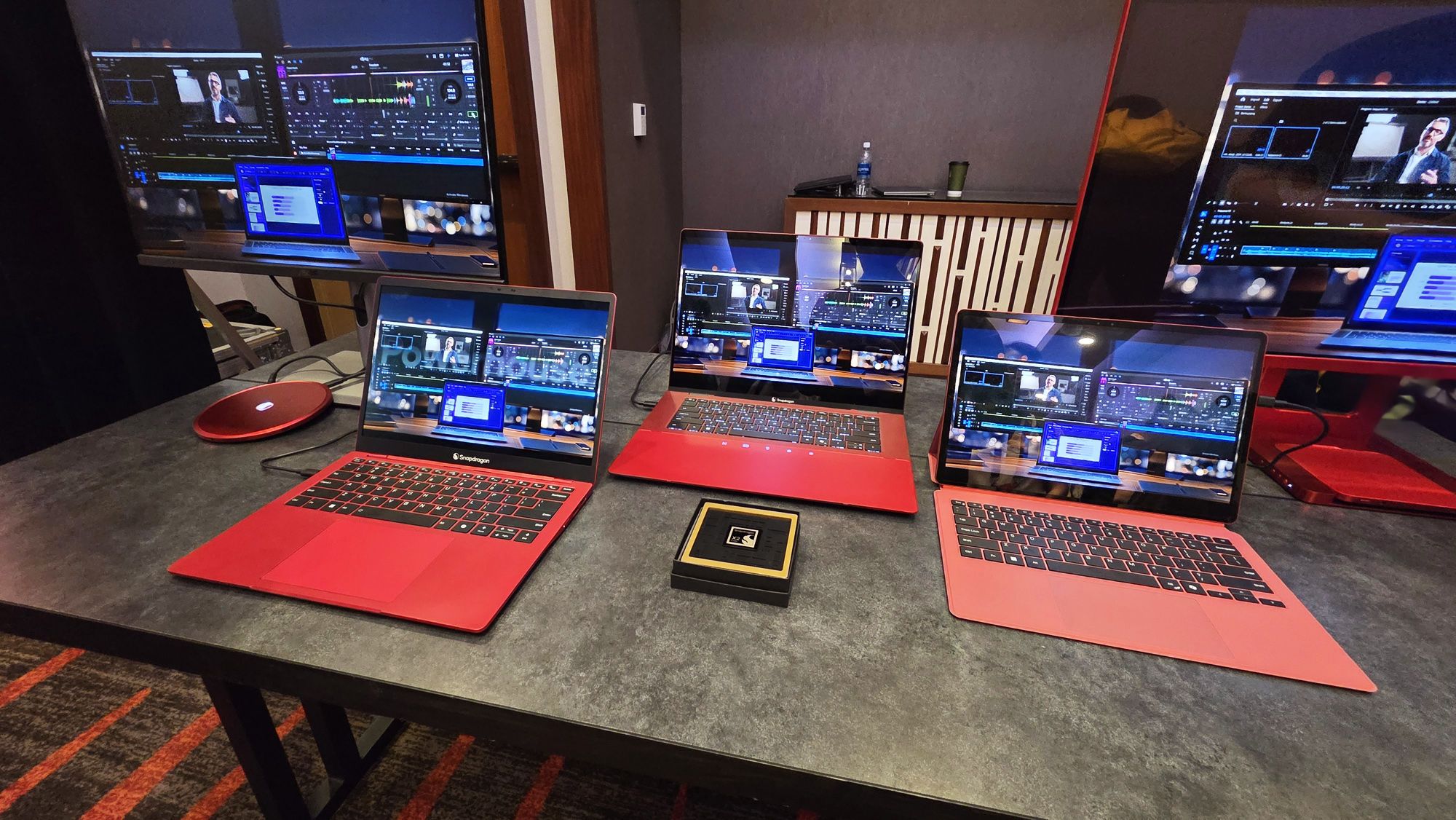…In Geekbench 6.5 single-core, the X2 Elite Extreme posts a score of 4,080, edging out Apple’s M4 (3,872) and leaving AMD’s Ryzen AI 9 HX 370 (2,881) and Intel’s Core Ultra 9 288V (2,919) far behind…
…The multi-core story is even more dramatic. With a Geekbench 6.5 multi-core score of 23,491, the X2 Elite Extreme nearly doubles the Intel Core Ultra 9 185H (11,386) and comfortably outpaces Apple’s M4 (15,146) and AMD’s Ryzen AI 9 370 (15,443)…
…This isn’t just a speed play — Qualcomm is betting that its ARM-based design can deliver desktop-class performance at mobile-class power draw, enabling thin, fanless designs or ultra-light laptops with battery life measured in days, not hours.
One of the more intriguing aspects of the Snapdragon X2 Elite Extreme is its memory‑in‑package design, a departure from the off‑package RAM used in other X2 Elite variants. Qualcomm is using a System‑in‑Package (SiP) approach here, integrating the RAM directly alongside the CPU, GPU, and NPU on the same substrate.
This proximity slashes latency and boosts bandwidth — up to 228 GB/s compared to 152 GB/s on the off‑package models — while also enabling a unified memory architecture similar in concept to Apple’s M‑series chips, where CPU and GPU share the same pool for faster, more efficient data access…
… the company notes the “first half” of 2026 for the new Snapdragon X2 Elite and Snapdragon X2 Elite Extreme…



X2 “Elite Extreme” probably in ideal conditions vs. the base M4 chip in a real-world device. Sure, nice single core results but Apple will likely counter with the M5 (the A19 Pro already reaches around 4,000 and the M chips can probably clock a bit higher). And the M4 Pro and Max already score as high or higher in multi-core. Real world in a 14 inch laptop.
It doesn’t “crush” the M4 series at all and we’ll see how it’ll perform in a comparable power/thermal envelope.
I don’t hate what Qualcomm is doing here, but these chips only work properly under Windows and the Windows app ecosystem still hasn’t embraced ARM all that much, and from what I’ve heard Windows’ x64 to ARM translation layer is not as good as Rosetta 2. Linux support is pretty horrible, especially at launch.